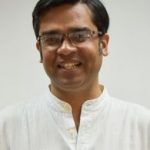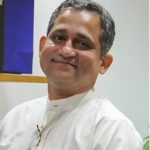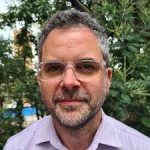Where next for the #ShiftThePower movement?
29 Nov 2023
Ahead of the #ShiftThePower Global Summit in Bogotá, the GFCF spoke to some friends and allies to capture their views of where the #ShiftThePower movement has got to, how the landscape has changed in recent years, and what the movement should focus on now.
From their different positions within the development ecosystem, our interviewees had contrasting perspectives but there were many common themes: the importance of just shifting the money; the need for solidarity across the whole of civil society; the need for courage to make demands; and the realities of working in a world where civic space is under threat in many places.
Among the issues they raised were:
- The imperative to #ShiftThePower is now widely accepted and nearly every part of the international development system knows that change is inevitable and imminent.
- We are at an inflection point. What kind of change happens is up for grabs – many want incremental changes. But can a colonial system transform through incremental change?
- To ensure a genuine transformation rather than just incremental or token change, we need a movement of movements and to pool resources, expertise, skills and knowledge.
- Many organizations want help in shifting the power. We need to start demonstrating there are practical steps they can take.
- So much power is tied up with money, so shifting the money is essential – it is time to simply do it.
- Donors need to stop funding those organizations not meeting their localization targets.
- The movement should track progress in shifting the money, and develop and deploy tools to measure whether decision-making is also being shifted to the Global South.
- Shifting the power is a political struggle and we can’t keep the political and post-colonial aspects of this separate from our attempts to transform the system.
- We need greater solidarity across global civil society to fight shrinking civic space.
Amitabh Behar
Interim Executive Director, Oxfam International
 “In terms of practical actions, the most fundamental one is to shift where the money and resources are used, because ultimately so much is about money. At the moment, the money is generated in the Global North and most of it is still spent in the Global North. We need to just hand over the money – at least 70% of what is raised, to strong local NGOs – with no strings attached. We need to shift so-called value add functions too.
“In terms of practical actions, the most fundamental one is to shift where the money and resources are used, because ultimately so much is about money. At the moment, the money is generated in the Global North and most of it is still spent in the Global North. We need to just hand over the money – at least 70% of what is raised, to strong local NGOs – with no strings attached. We need to shift so-called value add functions too.
On the ‘demand side’, local NGOs need to make it their business to ask really tough questions, to constantly demand that INGOs and donors live up to their values. Yes, some local NGOs are scared because they fear they’ll lose the small amount of funding they get. This is precisely the issue we face – it shows the complete asymmetry of power that exists. I would say we need to have the courage to make demands.”
Read the full interview with Amitabh here.
Degan Ali
Executive Director, Adeso

“The phrase ‘#ShiftThePower’ isn’t strong enough – that’s why I talk about decolonization. And when we think about an emergent system, I am talking about one that is really based on real ideas of equality, sovereignty, independence and fairness. One of the ways to move in this direction is to make civil society fully resourced and intentionally political. Let’s give these organizations more unrestricted funding and let’s help them think through these systems issues around the politics of aid and development. If we want to support civil society, we must support movement building, support them to be political actors and agitators and activists, not project implementers. We have to give them the flexible money to do that – and if it takes them ten years to make any progress so be it.”
Read the full interview with Degan here.
Biraj Patnaik
Executive Director, National Foundation for India
 “There’s a lot of tokenism in terms of shifting power to the Global South and not enough action in moving the money. So the first thing we should do is to track what part of the money has moved to the Global South. The second thing is to do with shifting where the decisions are made – and we need to track that too. This is not to just fuel advocacy efforts to push for progress but also to acknowledge those who have made changes.
“There’s a lot of tokenism in terms of shifting power to the Global South and not enough action in moving the money. So the first thing we should do is to track what part of the money has moved to the Global South. The second thing is to do with shifting where the decisions are made – and we need to track that too. This is not to just fuel advocacy efforts to push for progress but also to acknowledge those who have made changes.
I believe that there is another important piece of work for the movement to focus on – which is to build solidarity in civil society across the Global South and globally. How do we create a solidarity mechanism that really works for the Global South in times of shrinking civic space? What kind of support structures should we have? These are questions we need to be asking.”
Read the full interview with Biraj here.
Gunjan Veda
Director of Collaborative Research, Policy and Practice, Movement for Community-led Development
 “Among the Global Majority, we know we can’t go on with the top-down colonial development system we have had. The challenge is can we get our act together to use this moment to go beyond just making incremental change, which seems to be the comfortable option for many. But the truth is you can’t incrementally fix the system to become more community-led because this is a system that was designed to keep out communities, to keep out local organizations, to keep out Global Majority worldviews. It was a system of domination and control, and it cannot be fixed, it cannot suddenly become a system of equitable partnerships. The kind of change that we eventually get will depend on our ability as Global Majority organizations to come together and use this critical moment to push for transforming the system rather than tweaking it.”
“Among the Global Majority, we know we can’t go on with the top-down colonial development system we have had. The challenge is can we get our act together to use this moment to go beyond just making incremental change, which seems to be the comfortable option for many. But the truth is you can’t incrementally fix the system to become more community-led because this is a system that was designed to keep out communities, to keep out local organizations, to keep out Global Majority worldviews. It was a system of domination and control, and it cannot be fixed, it cannot suddenly become a system of equitable partnerships. The kind of change that we eventually get will depend on our ability as Global Majority organizations to come together and use this critical moment to push for transforming the system rather than tweaking it.”
Read the full interview with Gunjan here.
Jonathan Glennie
Co-founder of Global Nation, Steering Committee member of the Global Public Investment Network
 “The #ShiftThePower movement has been mostly focused at the community, local and sub-national level. What the Global Public Investment model brings to the movement is that it says: ‘you can’t avoid fitting in with the big, international money. Ultimately, we have to link that with small community money and discuss how that will work.’ We need to build the institutions and laws that mitigate for the power imbalances that are everywhere, new institutions that enable voice and ownership more. A new system in which the UN increasingly recognizes civil society as legitimate voices that need to be heard. That’s what we’re trying to do with Global Public Investment.”
“The #ShiftThePower movement has been mostly focused at the community, local and sub-national level. What the Global Public Investment model brings to the movement is that it says: ‘you can’t avoid fitting in with the big, international money. Ultimately, we have to link that with small community money and discuss how that will work.’ We need to build the institutions and laws that mitigate for the power imbalances that are everywhere, new institutions that enable voice and ownership more. A new system in which the UN increasingly recognizes civil society as legitimate voices that need to be heard. That’s what we’re trying to do with Global Public Investment.”

